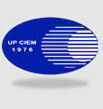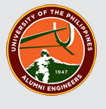IE 155 Student Teams Assist DPWH with Business Process Reengineering
Recently, as part of their practicum project, four student teams under the IE 155 (Industrial Systems Design) course taught by IE-OR Professor Mitchay Pacia were assigned to work with the Department of Public Works and Highways’ Business Innovation Division (BID) to assist in BID’s mission of sustaining the business process reengineering and improvement efforts at DPWH.
As a background, DPWH through the World Bank-funded National Road Improvement Program, mounted a Road Information and Management Support System project in 1997 that initiated a Business Process Reengineering initiative. Ten years later, a new office, the Business Innovation Division (BID), under the Information Management Service group, was created to sustain the continuous process improvements in DPWH.
Through the efforts of DPWH Assistant Secretary Bess Yap (IE ’75), DPWH offered to host four student teams to work with its BID to identify process deficiencies and design reengineered processes in four target areas. At the end of the semester, the teams were expected to submit Recommended Process Improvement Reports.
Two of the four UPIE student teams were assigned to the HR and Administrative Services (HRAS) which is responsible for the HR development planning and operation – recruitment, selection, career management, skills development, welfare and benefits – property management, security, building maintenance, and records management. The first team worked with the HR Training Group’s Capacity Development Division, which formulates and implements human resource development policies, guidelines, systems, methodologies, programs and projects. The team found misaligned job descriptions vs. expectations and requirements; skewed results due to disproportionate dissemination of the department’s Training Needs Assessment forms; backlog in exit interviews; and poor design of training needs and impact evaluation forms. The team suggested the adoption of the Kirkpatrick evaluation levels model, redesigned the forms appropriately, suggested revision in the sampling method for impact evaluation, and reallocated functions and workloads to suit the update job descriptions. If the team’s recommendations are implemented, the project sponsors expect more balanced job location, faster processing times, and more efficient and more accurate processes and results.
The second HR team was assigned to the Records Management, Facilities Maintenance, and Property Management Divisions. For Records, the team discovered that the cost of sending out issuance documents via courier to all the regional offices was double what other government units spent with their document distribution. The students recommended a cloud storage system for document dissemination that would reduce the cost, provide greater efficiencies, at the same time maintaining the security and protection levels required. For Facilities, the team found regular backlog in repairs of air-conditioning units (ACUs) so additional technicians were recommended for hiring. The team recommended adoption of an aggressive preventive maintenance program for ACUs, a one-day buffer each week for job spillovers, and job redistribution among the six technicians. And for Property, it was found that for-disposal items took up too much warehouse space due to the need for COA approval before disposition so the team recommended the use of external public storage and distribution of the for-disposal items list to all government departments and LGUs since some of them might have use for the items. At the end of the project, the DPWH Director in-charge commended the two HRAS teams. “We couldn’t have possibly done the study on our own since it required a lot of time and manpower. We need to address the identified weaknesses and operational lapses. The recommendations of the team will be very useful as we undertake operational improvements.”
The third IE team was assigned to the Procurement Service, which is responsible for accreditation of suppliers, project procurement planning, and actual buying, canvassing and awarding. The student team found inadequate checking on contractor performance, project and procurement completion that were being implemented late, and insufficient control over nearly all stages of the procurement process. They therefore recommended creation of a monitoring section to track procurement planned-vs-actual dates and design of a contractor evaluation and management system. Together with BID, the team also recommended strengthening the liaison with “internal client” groups.
The fourth and final student team was assigned to Stakeholder Relations Service, which manages the relationships with NGOs, civil society organizations and the general public so they can take a more active part on DPWH governance. The team focused on the handling of complaint or query tickets, given that the goal of 10 working days to resolve issues was not being met when it came to roads, bridges and flood control; that in fact, the department was averaging 30 days resolution. Also, the team noted no standard format for input of citizen feedback. The team recommended an electronic tracking and sorting system, expanding the automated phone call handling, redesign of the website’s feedback page, and ticket standardization. Although the Stakeholder Relations Service had already been working on improving its citizen feedback system and redesigning the website feedback page, the recommendations were still received positively. The system owner also noted that the team should have selected clients randomly among the clients of the Customer Feedback Management Center during the conduct of the satisfaction survey.
Project sponsor (and DPWH ASEC) Bess Yap said “DPWH provided a venue to test the knowledge of the academically-outstanding IE students and to apply their learning to real-life workplace situations.” It isn’t all one-way though. Bess confessed, “I personally hope that some of these brilliant service-oriented young individuals could be inspired to join the government workforce and contribute to nation-building. After all, the government is becoming one of the most dynamic sectors and salaries earned by government professional are now getting competitive with what the private sector offers.”
IE155 Professor Mitchay Pacia also shared her own perspective. “IE155 is a capstone course for graduating students. It is an integrative course designed to apply learnings from previous IE courses in an actual company or organization. Its main challenge is to identify the operational problems and recommend solutions for improved efficiency, effectiveness and sustainability. The DPWH student groups grappled in the beginning trying to address the lack of documentation and the limited time for actual observation. But with perseverance and regular consultations, they were able to turn in valuable work for DPWH. I really hope some of the recommendations will be implemented!”
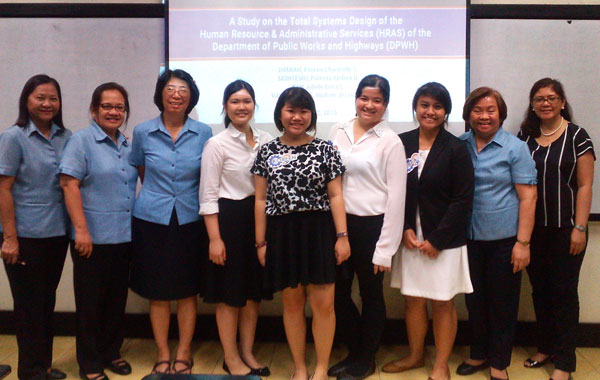
Picture taken during the final presentation of the HR Training Group (from left to right) Ms. Maria Mildred Villar of DPWH-SRS,Ms. Mary Grace Obja-an of DPWH-PrS, Assistant Secretary B. Elizabeth E. Yap of DPWH,UPIE team members assigned to the HR Training Group – Ms. Adelle Tan,Ms. Koreen Damian, Ms. Nichole Valdecantos, and Ms. Bea Monteiro,Director Angela Abiqui of DPWH-HRAS, and Professor Adeline Pacia of the UP IE/OR Department.
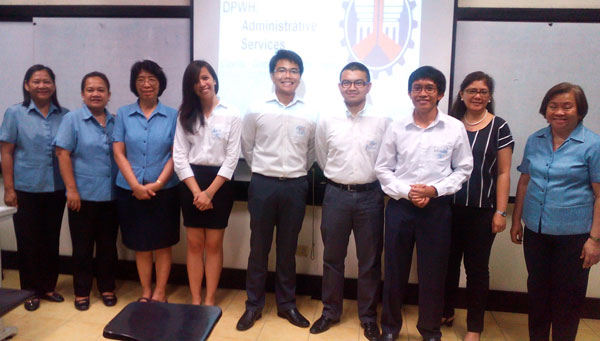
Picture taken during the final presentation of the HR Records Keeping and Facilities Management Group (from left to right) Ms. Maria Mildred Villar of DPWH-SRS, Ms. Mary Grace Obja-an of DPWH-PrS, Assistant Secretary B. Elizabeth E. Yap of DPWH, UPIE team members assigned to the HR Records Keeping and Facilities Management Group – Ms. Sam Gorospe, Mr. Cyle Valdez, Mr. Earl Santos, and Mr. Adrian Castillo, Professor Adeline Pacia of the UP IE/OR Department, and Director Angela Abiqui of DPWH-HRAS.
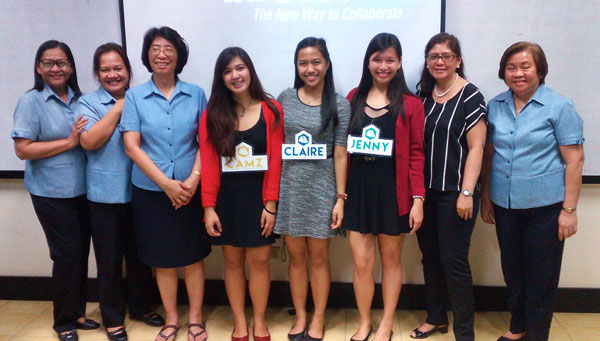
Picture taken during the final presentation of the Procurement Group (from left to right) Ms. Maria Mildred Villar of DPWH-SRS, Ms. Mary Grace Obja-an of DPWH-PrS, Assistant Secretary B. Elizabeth E. Yap of DPWH, UPIE team members assigned to the Procurement Group – Ms. Camille Sulit, Ms. Emmalie Claire Llanes, and Ms. Jenny Roque, Professor Adeline Pacia of the UP IE/OR Department, and Director Angela Abiqui of DPWH-HRAS.
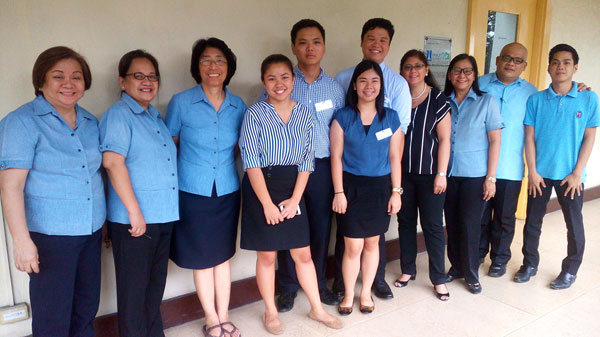
Pictures taken during the final presentation of the Stakeholders Relations Group (from left to right) Director Angela Abiqui of DPWH-HRAS, Ms. Mary Grace Obja-an of DPWH-PrS, Assistant Secretary B. Elizabeth E. Yap of DPWH, UPIE team members assigned to the Stakeholders Relations Group – Ms. Lisette Jingco, Mr. Weston Lee, Ms. Pau Sarmiento, and Mr. Kyle Rosario, Professor Adeline Pacia of the UP IE/OR Department, Ms. Maria Mildred Villar of DPWH-SRS, Mr. Andro Santiago, and Mr. Jamil Usop of DPWH-SRS.






